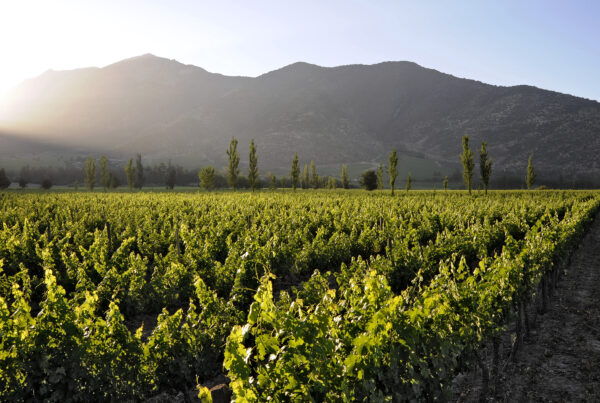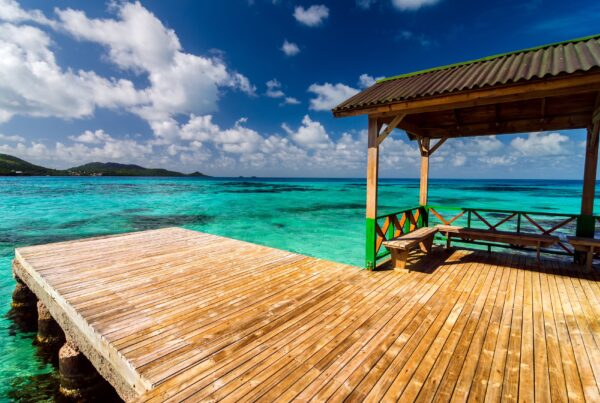 Although the focus on Oceanwide Expeditions cruises is providing passengers with the maximum possible polar shore time, sometimes off-shore time is just as important.
Although the focus on Oceanwide Expeditions cruises is providing passengers with the maximum possible polar shore time, sometimes off-shore time is just as important.
And there’s no better adventure than polar kayaking. Even more so than Zodiac tours, paddling gets you closer to the floes, bergs, bays — and sometimes marine wildlife — than perhaps any other activity except an invigorating polar swim (which is not something we recommend for most people).
To find out about all the perks that polar kayaking has to offer, we spoke with veteran kayak guides Fran Pothecary and Pete Gwatkin, who had much to say on the matter — both about what drew them to the sport and what may draw you to it as well.
Why is kayaking a great way to experience Antarctica and the Arctic?
Fran: Everybody should try kayaking in Antarctica. It’s a chance to steer your own little craft in icy waters, to escape the sound of the ship’s engine, to just sit and hear nothing but the drop of water from your paddle and the distant roar of a collapsing column of glacial ice.
And if you’re lucky, maybe you’ll be able to pick up a lump of thousand-year old ice for your gin and tonic back on the vessel.
Pete: Why is Arctic kayaking so incredible? Maybe it’s the sense of adventure and isolation when kayaking only 10 degrees south of the North Pole, or maybe it’s the stark beauty and fascinating historical backdrop of human exploration.
Is it being surrounded by ice as far as the eye can see, the blue whale lunge-feeding around the ship during BBQ night on Hinlopen Strait? Is it the walruses, polar bears, the twenty thousand seabirds perched on the cliffs of Alkefjellet? I think maybe it’s all of it.
What early kayaking experiences got you started in this line of work?
Pete: My first time in a kayak was as a 10-year-old boy in a wooden-framed kayak that my father had built. Kayaking as a teenager was about having outdoor adventures during my days away from the factory.
I would eventually have jobs in sports development, youth work, community education, and finally outdoor education. This led to experiencing a range of outdoor activities that included climbing, mountaineering, skiing, and of course, kayaking.
At the Scottish National Outdoor Training Centre, where I worked for 10 years, I kayaked extensively and gained the highest kayak performance and coaching awards in the UK.
Fran: I was a whitewater kayaker before I started sea kayaking, but when I started sea kayaking I never looked back.
I love that sea kayaking has the potential to combine the excitement of white water with the ability to undertake multi-day journeys and get closer to nature.
My first sea kayaking experience was a week-long journey with two friends around the Outer Hebrides, off the west coast of Scotland. We spent our long mid-summer days idling up the coast, swimming with seals, bivvying on the beaches with driftwood fires, a wee dram of whisky on hand. Needless to say, I was hooked.
How did these experiences lead to you to kayak for Oceanwide?
Fran: I came to Oceanwide after working as a field guide for two years with the British Antarctic Survey, where I gained experience in Antarctica, though not on the sea.
After a brief spell back in the UK with the UK Antarctic Heritage Trust, I decided I needed to get outdoors again. I knew other people who worked for Oceanwide, so I put my name forward and was offered a couple of trips.
This will be my third season with OEX. I have worked on both Plancius and Ortelius, and I’m looking forward to kayaking on the new ship, Hondius, in the future.
Pete: In early 2010, I heard that Oceanwide was looking to recruit a kayak guide based in Europe. That summer, I found myself in Svalbard aboard Plancius and in the company of great staff and passengers. I have not yet recovered from this incredible trip around Svalbard.
What are some of your favorite spots to kayak in the Arctic and Antarctica?
Pete: I love kayaking in all the classic Antarctic venues — Neko Harbor, Paradise Bay, Petermann Island, Half Moon Island, and within an active volcano at Deception Island.
But one of my most vivid memories was from kayaking in the Arctic. As I led the kayaking group around a small headland in Svalbard, we were greeted with the sight of a polar bear on the shore, sitting in a small bay sitting in front a fresh kill: a beaked dolphin. The time we spent silently observing this bear was just magical.
Fran: There are so many good places to get on the water in Antarctica. Cuverville is a favorite, because it is often teeming with wildlife – in particular humpback whales, which are not shy when it comes to the kayaks.
I have had my closest encounters with whales at Cuverville, and there is something both exhilarating and terrifying when two great bodies disappear under your kayak. Where will they emerge?!
Paradise Bay is also a favorite, especially under the steep cliffs of Skontorp Cove, where the sheer sides drop into invisible fathoms under your kayak.
Final thoughts on what sets polar kayaking apart from “ordinary” paddling?
Pete: Kayaking in the Arctic and Antarctica offer an antidote to the trappings of modern-day living, and my sense is that most passengers who come aboard our ships feel the same.
I think the polar regions in general offer us an opportunity to disconnect from hyper-modernity, to slow down and let our more natural senses return. This both energizes and inspires us.
Polar kayaking can on occasion be cold and windy, but if you get lucky, these amazing watercrafts can get you really up close and personal with nature. I believe these experiences redress an imbalance in our modern lives, driving us to seek out more of these experiences.











